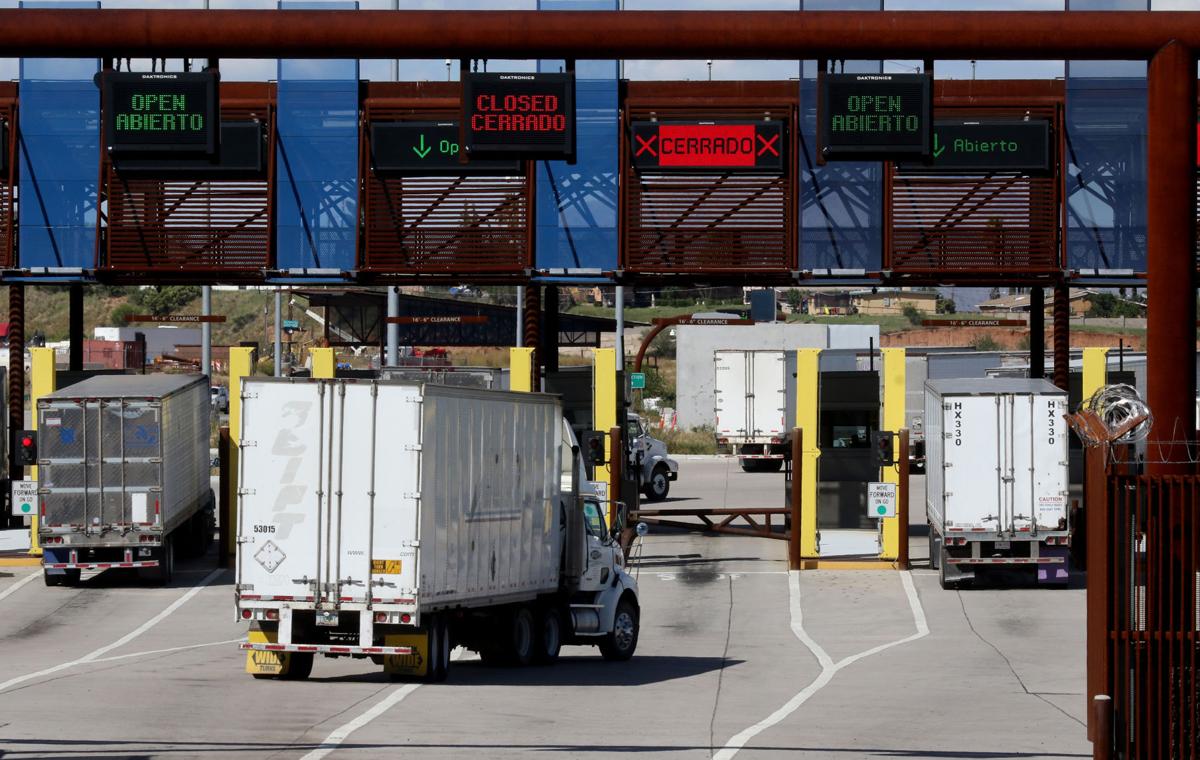Donald Trump took regular aim during his campaign of a trade deal that bolsters Arizona's economy with about $30 billion in annual trade with Mexico.
He denounced the North American Free Trade Agreement as a "disaster" as he told voters from states where manufacturing had dried up that their jobs had been exported to Mexico. He said one of his first acts in office would be to renegotiate NAFTA and bring those jobs back to the United States.
Now that his presidency looms, what will he actually do?
The NAFTA treaty with Mexico and Canada was signed by President George Bush in 1992 and the implementing legislation was signed by President Bill Clinton in 1993. Since then, U.S.-Mexico trade quintupled to about $500 billion annually as tariffs were virtually eliminated.
Trump called NAFTA "the worst trade deal ever approved in this country." He said he would put a 35-percent tariff on imports by U.S. companies operating in Mexico, which could affect a broad swath of the Arizona economy.
The local business community in Nogales adamantly opposes getting rid of NAFTA, said Bruce Bracker, a Nogales businessman and past-chairman of the Greater Nogales Santa Cruz County Port Authority.
"Arizona's economy is absolutely dependent on NAFTA," Bracker said, noting that 639,000 trucks drove through Nogales ports last year.
Area business people are anxious about what Trump might do, and many hope that the bluster of his campaign will give way to a position that's "a lot more moderate," Bracker said.
Trade with Mexico supports about 100,000 jobs in Arizona and retailers depend on the roughly $8 million Mexican shoppers spend daily in Arizona.
The binational trade that goes through Nogales, as well as an increasing number of companies with offices in Arizona and Sonora, operates under NAFTA rules.
Every day, hundreds of trucks haul thousands of pounds of fruits and vegetables from farms in Mexico through the commercial port of entry in Nogales. The same goes for a wide array of industrial products made in assembly plants in Nogales, Sonora. Trains roll through downtown Nogales daily carrying Ford sedans made at a plant in Hermosillo and tons of Mexican cement.
About 34,000 people work in more than 100 assembly plants just south of the border, churning out electronic appliances, aerospace parts, machinery and equipment, and other industrial goods.
The companies that own the assembly plants — maquiladoras, as they are known in Spanish — are based throughout the United States, including California, New Jersey, Massachusetts, Illinois, Minnesota and states that proved key in the 2016 election: Pennsylvania, Indiana, Wisconsin, Ohio, Iowa and Michigan.
Other companies are based or have offices in Nogales, Arizona, or in Rio Rico, Tucson, Phoenix, Chandler and Tempe. In Tucson, hundreds of companies export goods to Mexico or Canada under NAFTA rules.
Despite the broad powers a president has over international trade, Trump likely will face opposition from Republican members of Congress who traditionally support free trade.
When the NAFTA vote went to the House it found support among 234 Republicans. Last year 190 Republicans voted to give President Obama fast-track authority to negotiate the Trans-Pacific Partnership trade deal.
Trump also might find himself consorting with an unlikely ally for a Republican president: labor unions who blame NAFTA for the nation's widespread loss of manufacturing jobs.




